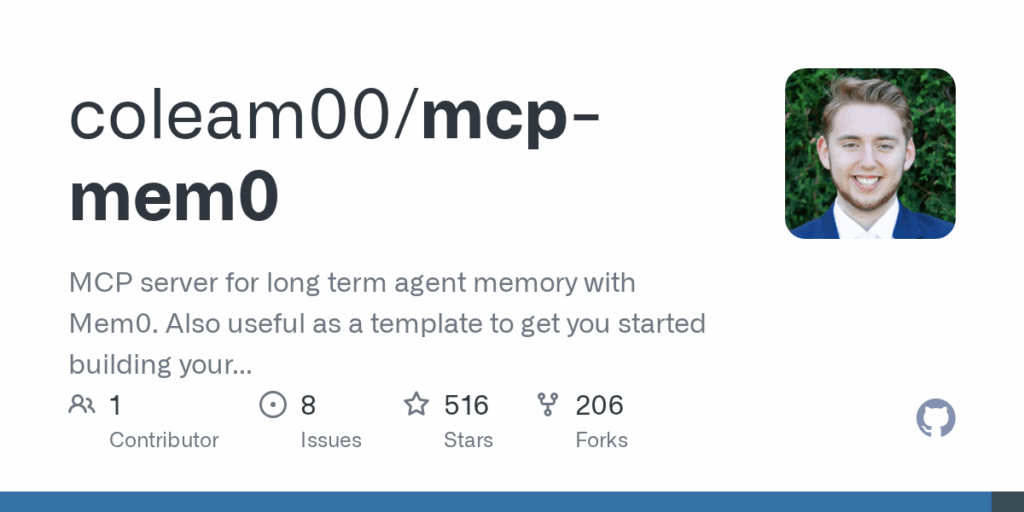mcp mem0
Basic Information
This repository provides a template implementation of a Model Context Protocol (MCP) server integrated with Mem0 to give AI agents persistent long-term memory via semantic indexing and vector storage. It demonstrates how to implement MCP tools that save memories, return all memories, and perform semantic searches, and it follows best practices for MCP servers so it can be used as a reference or starting point for your own implementation. The project includes example configuration for running with SSE or stdio transports, Docker and local Python execution instructions, and guidance for connecting to PostgreSQL/Supabase for vector storage and to common LLM providers. Use it to learn MCP server structure, to extend with additional tools, or to provide memory capabilities to MCP-compatible clients.








